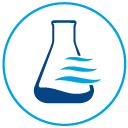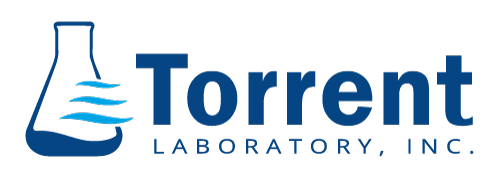
Is it Safe to Eat Plants Grown in Water Contaminated with PFAS?
Overview on PFAS Contaminants
Perfluororalkyl and polyfluoroalkyl substances (PFAS) are a group of human-made chemicals. They have been used in firefighting foams and nonstick, water-repellent and stain-repellent coatings for consumer goods. Unfortunately, we now know that many of these chemicals are terribly harmful to human health. We also know that these are long lasting chemicals with strong molecular bonds that do not break down easily or quickly.
Wherever PFAS have been found in water sources in the United States, they have typically been found around, below and downstream from areas where large amounts of PFAS were released into the environment. These include industrial sites that manufactured PFAS, sites that applied PFAS to consumer goods, or at locations where certain types of firefighting foam were frequently used (primarily airports, military bases, and fire department training facilities). Getting a PFAS water test is the best way to know that your water is safe.
Some Harmful Effects of PFAS
These forever chemicals move rather easily through soil, water, dust and air. PFAS enters human bodies through consumption of foods (meats, fruits, nuts, grains, vegetables, etc.), drinking water and breathing polluted air. Once ingested by humans PFAS work their way through the body and into the kidneys and liver. And since they don’t break down, they collect there.
As the levels of PFAS contaminants rise, they begin to create all kinds of health problems including: liver damage, endocrine damage, thyroid disease, cancer, high cholesterol, delays in physical development, hormone suppression and decreases in fertility. And they do the same in our house pets, farm animals and wildlife.
Why Water Contaminated with PFAS is Bad for Crops
If you get water for your gardens, crops, orchards, vineyards, etc., from a pond, irrigation system, underground well or rain barrel, it may also contain PFAS contaminants. When plants are watered, they absorb the water through their roots, then through vascular systems similar to the human circulatory system. The water moves through the roots, trunks, branches into the stems, leaves, buds and fruits.
If the soil or the water is contaminated, those contaminants will be carried through the entire plant. This may not be such a concern if the plants are purely ornamental, unless the chemicals kill the plants themselves. But if they are crop plants, vineyards, orchards or root vegetables then eating fruits and veggies from plants contaminated by PFAS can make you very sick. And over time, even the plants themselves may be poisoned and killed by the PFAS.
Additional research is needed to quantify what levels of PFAS can accumulate in plants that have been grown in soils or irrigated with water contaminated with PFAS. The next step must be to determine specific standards for safe levels. Since we eat a wide variety of foods, the health risk is believed to be low if we only occasionally eat produce grown in soil or irrigated with water contaminated with PFAS. The problem is that since these chemicals are so long lasting and capable of accumulating in the body, and since there are a variety of sources from which we can ingest PFAS, it has become clear that avoiding or minimizing PFAS exposures is incredibly important whenever possible.
PFAS Testing is Vital
The very best way to protect human health from the dangerous effects of PFAS is to get a professional test for PFAS in water from your wells, ponds and all sources of irrigation on your property. Getting a PFAS water test is made possible and simple by contacting a local environmental testing laboratory. These labs will not only give you all the information and supplies you need to collect your samples, but they will also provide you with fast and reliable test results. Environmental laboratories are exceptionally capable with PAFS soil testing as well as at conducting PFAS water tests.
Conclusion
With dual-certified PFAS testing for the full list of PFAS compounds, Torrent Laboratory offers accurate assessment of every test for PFAS in water we conduct. Our full-service lab also offers the fastest turnaround time in the industry. So you get the information you need—faster.
Torrent Laboratory’s environmental testing services are backed by a breadth and depth of certification, including California’s Environmental Laboratory Accreditation Program (CA ELAP), The Department of Defense Environmental Laboratory Accreditation Program (DoD ELAP) and National Environmental Laboratory Accreditation Certification (NELAC).
Torrent has decades of experience and our chemists have a combined 150 years of analytical expertise. We know exactly how to serve you! Our final reports contain an additional attachment that includes the Federal Guidelines so that you can compare your water quality data. And, our relationship doesn’t necessarily end once you receive your data–Torrent is always available if you have additional questions or concerns.






